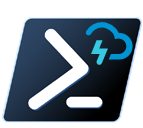VMware.vCAV.Community - A vCloud Availability PowerShell Module
Length: 306 words | Estimated Reading Time: 1 minutes
 vCloud Availability is a supplemental product for vCloud Director that allows hypervisor Replication of workloads and failover from vSphere on-premises and between vCloud Director installations. I have been working with the product team at VMware for over a year and they have done a really good job of integrating feedback from all Service Providers and really working to make the product better.
vCloud Availability is a supplemental product for vCloud Director that allows hypervisor Replication of workloads and failover from vSphere on-premises and between vCloud Director installations. I have been working with the product team at VMware for over a year and they have done a really good job of integrating feedback from all Service Providers and really working to make the product better.
For a little of a year now (since vCloud Availability Cloud-to-Cloud v1.5) I have been very slowly developing a “unofficial” PowerShell module for vCloud Availability. The motivation really was initially to and to enable me to automate compliance and monitoring and to facilitate repeatable deployments. Over time its grown into a bit of a beast and now I think its ready for some general consumption. (Be warned ! It still needs work)
I hope that others in the vExpert & VCPP community can use the module to make life a little easier and contributions and feedback are welcome. My focus going forward will be enhancement of the “Replication Management” functions and add more support for vCenter based functions as time permits.
The project is hosted on GitHub @ https://github.com/AdrianBegg/VMware.vCAV.Community
Installation
Install VMware.vCAV.Community module from the PowerShell Gallery:
Install-Module -Name VMware.vCAV.Community -Scope CurrentUser
Import-Module VMware.vCAV.Community
Connect to the vCloud Availability Service using a supported authentication method
Connect-vCAVService -Server "vcav.pigeonnnuggets.com" -AuthProvider vCDLogin
Documentation
All of the cmdlets in the module should have well described PowerShell help available. For a list of cmdlets available use the Get-Command *vCAV* command after the module has been imported or installed. For detailed help including examples please use Get-help <cmdlet> -Detailed (e.g. Get-help Get-vCAVReplications -Detailed). If you have any questions about usage please don’t hesitate to contact me on Twitter or the VCPP/vExpert/VMWare Code Slack.